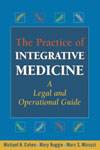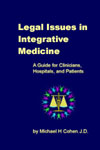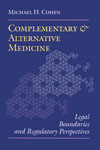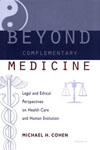Dietary supplements regulations make IRS rules read like Hemingway
- Email This
- Share Link
Dietary supplement regulation requires companies to seek careful legal guidance before bringing products to market.
Even though there is no requirement of premarket approval (unlike the case for drugs, which require FDA approval for safety and effectiveness), dietary supplements are in fact subject to a maze of regulation. This includes both FDA (Food and Drug Administration) and FTC (Federal Trade Commission) rules to ensure that dietary supplements:
- have proper claims (for example, structure-function and not disease claims)
- where claims are properly substantiated (by competent and reliable scientific evidence)
- and consumers are not given false or misleading statements
- endorsements and testimonials must comply with FTC rules
- claims can be implied as well as express
- marketers must respect rules concerning third-party literature
In Consumer Justice Center v Olympian Labs, Inc, 99 Cal.App.4th 1056 (Ct. App., 4th Dist., 2002), the California Court of Appeal bluntly stated that a particular section of the DSHEA (codified at 21 USC section 343(r)):
is not the clearest legislation ever written. To be truthful, it is a nightmare of internal cross-references which makes parts of the Internal Revenue Code read like Hemingway in comparison.
As an example, the Court quoted the following:
“A statement of the type required by paragraph (q) of this section that appears as part of the nutrition information required or permitted by such paragraph is not a claim which is subject to this paragraph and a claim subject to clause (A) is not subject to clause (B).”
Typically, a legal consult involving dietary supplement labeling focuses on three important legal issues: the claims being made; the labeling; and substantiation.
Be sure to seek an attorney who is well-versed in all aspects of FDA and FTC laws and regulations before bringing new dietary supplement products to market.
***
Michael H. Cohen is a thought leader in health care law, pioneering legal strategies and solutions for business law clients in traditional and emerging healthcare. wellness, and lifestyle markets. As a corporate and regulatory attorney who has also handled litigation matters, Michael H. Cohen represents conscious business leaders in a transformational era. Clients seek Michael H. Cohen's legal expertise on business structure and entity formation (corporations, partnerships, LLCs); health care licensing matters; employment contracts and independent contractor agreements; dispute resolution; e-commerce; intellectual property issues; informed consent and malpractice liability issues; HIPAA and confidentiality and privacy issues; Stark, self-referral, anti-kickback, patient brokering, and fee-splitting questions; dietary supplement labeling; medical device and FDA matters; insurance reimbursement and Medicare issues; website disclaimers; concierge medicine legal advice; telemedicine; and other business law and health care regulatory compliance arenas. Whether advising start-ups or established companies, he brings his entrepreneurial spirit and caring insight to cutting-edge legal and regulatory challenges. Attorney Michael H. Cohen is admitted to practice law in California, Massachusetts New York, and Washington, D.C. Contact our attorneys firm today.
 The Practice of Integrative Medicine: A Legal and Operational Guide is now available from Springer.
The Practice of Integrative Medicine: A Legal and Operational Guide is now available from Springer.
 One of the transformations facing health care in the twenty-first century is the safe, effective, and appropriate integration of
One of the transformations facing health care in the twenty-first century is the safe, effective, and appropriate integration of
 Michael H. Cohen's novel A Question of Time is about consciousness. Gabriel Goodman takes a vacation from his law firm
Michael H. Cohen's novel A Question of Time is about consciousness. Gabriel Goodman takes a vacation from his law firm
 Legal Issues in Integrative Medicine: A Guide for Clinicians, Hosptials, and Patients by Michael H. Cohen (National Acupuncture Foundation,
Legal Issues in Integrative Medicine: A Guide for Clinicians, Hosptials, and Patients by Michael H. Cohen (National Acupuncture Foundation,
 In Complementary and Alternative Medicine: Legal Boundaries and Regulatory Perspectives, Michael H. Cohen breaks new ground in putting together the
In Complementary and Alternative Medicine: Legal Boundaries and Regulatory Perspectives, Michael H. Cohen breaks new ground in putting together the
 In Beyond Complementary Medicine, Michael H. Cohen goes deeper into the legal, ethical, and regulatory aspects of integrating complementary and
In Beyond Complementary Medicine, Michael H. Cohen goes deeper into the legal, ethical, and regulatory aspects of integrating complementary and
 Future Medicine by Michael H. Cohen is an investigation into the clinical, legal, ethical, and regulatory changes occurring in our
Future Medicine by Michael H. Cohen is an investigation into the clinical, legal, ethical, and regulatory changes occurring in our
 What happens when a Wall Street lawyer, steeped in Judaism, enters an interfaith seminary, engages mystically, and connects with disincarnate
What happens when a Wall Street lawyer, steeped in Judaism, enters an interfaith seminary, engages mystically, and connects with disincarnate